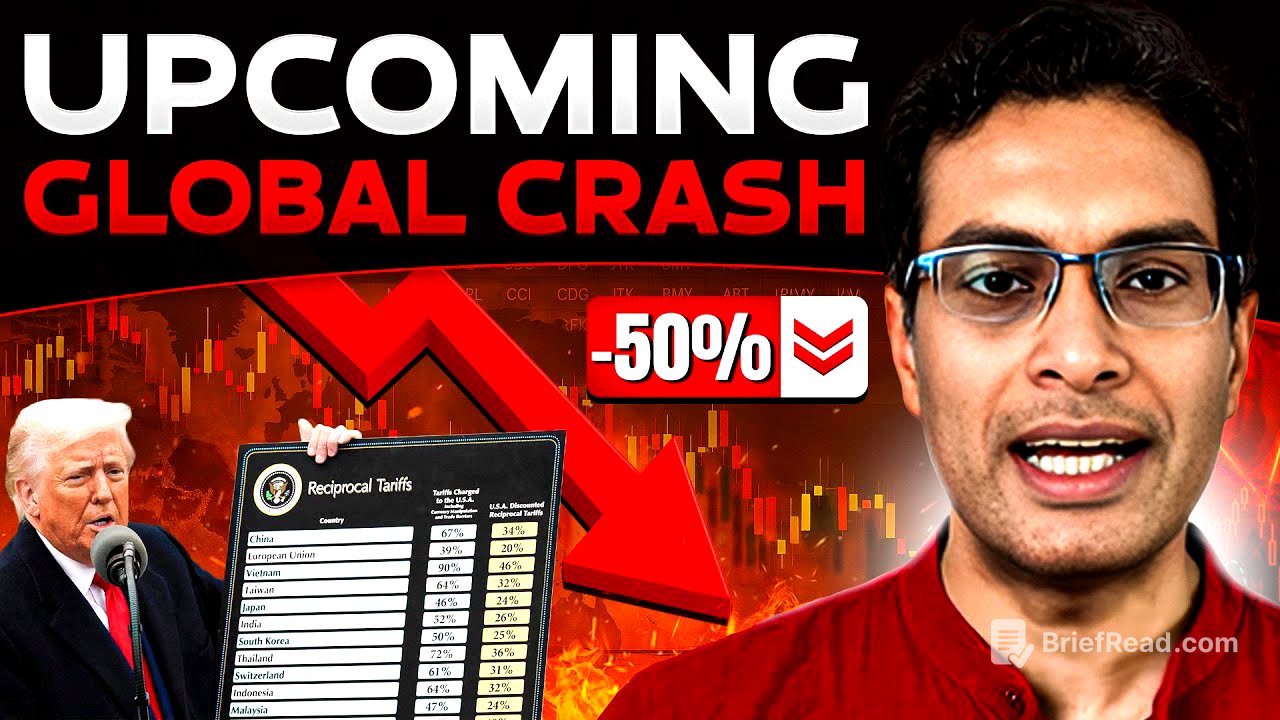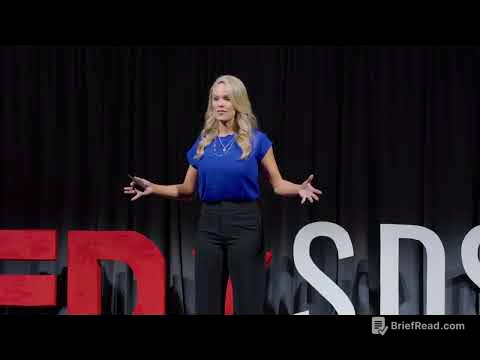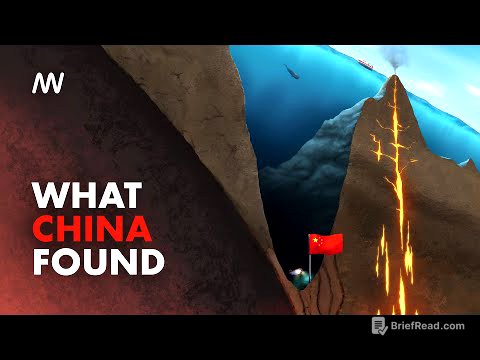TLDR;
This video discusses the potential impact of Trump's tariffs on the stock market, particularly in the US and India. The speaker, Akshat Shrivastava, a hedge fund manager based in the UAE, provides a comprehensive analysis of the situation, addressing concerns about a potential recession and highlighting opportunities for investors. He argues that despite the current market downturn, it's a good time to buy stocks, particularly in the US and India, due to the risk-reward equation and the potential for significant gains in the future.
- The speaker believes that a recession is possible but not inevitable, and the outcome depends on the outcome of trade negotiations between the US and China.
- He encourages investors to take advantage of the current market correction, as historical data suggests that significant drops are followed by substantial rises.
- He highlights the positive impact of lower oil prices and a strengthening Indian Rupee on the Indian economy, making it a good time to invest in Indian stocks.
Trump 2.0 Tariffs: Recession, Stock Market Crash & Investment Opportunities [0:00]
Akshat Shrivastava, a hedge fund manager based in the UAE, discusses the potential impact of Trump's tariffs on the stock market. He begins by explaining the concept of a recession, highlighting that it involves two consecutive quarters of GDP slowdown, not necessarily a negative GDP. He then uses historical data to illustrate the impact of past recessions on the stock market, showing significant drops in the NASDAQ and S&P 500 during the 2008 and 2020 recessions.
He acknowledges that a recession is possible due to the current tariff situation but emphasizes that it's not a certainty. He cites the increasing probability of a recession predicted by major banks, but stresses that no one can predict the future with certainty. He then moves on to discuss the current market correction, arguing that it presents a good opportunity for investors to buy stocks. He uses historical data to show that significant market corrections are followed by substantial rises, highlighting the potential for significant gains.
Is It A Good Time To Buy Indian Stocks? [8:13]
Akshat Shrivastava then focuses on the Indian stock market, specifically Nifty 50, and its potential impact from Trump's tariffs. He explains that the Indian market is currently undergoing a valuation correction, not a parabolic drop like the NASDAQ. He predicts a further 4-5% drop in Nifty 50 due to global market trends, but emphasizes that this presents a good opportunity for investors.
He then delves into the specific impact of Trump's tariffs on India, highlighting three key points. Firstly, he points out that lower oil prices benefit India as a net importer of oil, reducing its oil import bill. Secondly, he notes that the strengthening Indian Rupee against the US Dollar is positive for India, as it helps manage inflation and other economic factors. Thirdly, he argues that the nature of the tariffs, particularly the high tariffs imposed on China and Vietnam, creates opportunities for India as a potential alternative manufacturing hub. He cites the example of iPhone manufacturing, which is currently heavily reliant on China, and suggests that India could become a significant destination for manufacturing due to the tariffs.
Tariffs Have A Life: Stages & Implications [11:52]
Akshat Shrivastava further explains the concept of "tariffs having a life," outlining three stages. Stage one involves the initial imposition of tariffs, which has already occurred. Stage two involves renegotiation between the US and China, which is expected to happen in the coming months. Stage three involves reaching a new normal, where a new baseline for tariffs is established. He argues that reaching stage three will bring more certainty to the market and lead to a revival of bullish sentiment.
He then discusses the potential impact if the current situation takes longer to resolve, drawing parallels with the 2008 financial crisis. He acknowledges that a prolonged crisis is possible but highlights key differences between the 2008 crisis and the current tariff situation. He argues that the current tariff war is more of an ego war than a structural defect in the economy, and that it is likely to be resolved faster than the 2008 crisis. He also points out that the US Federal Reserve has tools available to stimulate the economy if needed, making a prolonged structural slowdown unlikely.
He concludes by emphasizing that the current market downturn presents a good opportunity for investors to buy stocks, comparing it to the 2020 COVID crisis, where real estate prices dropped significantly, creating opportunities for buyers. He encourages viewers to take advantage of the current discount period and invest in the market, as it's a chance to make significant gains in the future.









